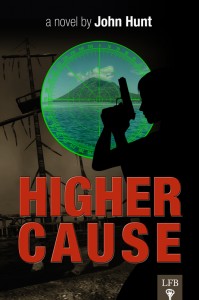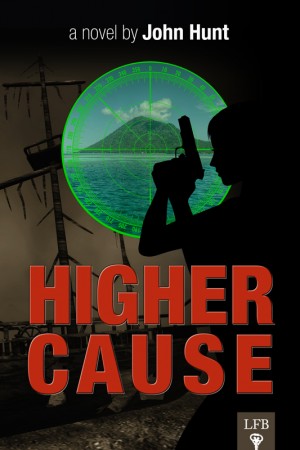
“The Cartographer Wasps and the Anarchist Bees” is a delightful fable,1 not only on account of the political themes it explores but also some very fine writing. The short story was first published in Clarkesworld Magazine (Issue 55, April 2011) and then republished by Escape Pod (Episode 343, March 2012). If you’re partial to audio fiction, you can spend a pleasant half hour listening to the story being narrated by Kate Baker (Clarkesworld) or Mur Lafferty (Escape Pod).2 Yu’s tale has been nominated for a 2011 Nebula Award and a 2012 Hugo and is a finalist for a Locus Award and the Million Writers Award, and it is deserving of all of these honors. Yu, a student at Princeton, is a new author to watch.
Yu’s tale warns of the transitive and cyclical nature of violence — from thoughtless destruction to calculated imperialism. It begins with a boy attacking a wasp nest and ending the uneasy truce between the wasps and his village. The villagers make an amazing discovery: the wasps had inked beautiful maps of the land (China) into the walls of their nest. Soon the wasps were hunted to near extinction and a group of survivors manages to escape.
The leader of the surviving wasps has learned well the hard lessons of realpolitick. Once the new nest has been established, she orders her wasps to expand aggressively. A nearby bee hive is enslaved and forced to pay tribute. The victim of violence has resolved to avoid being the victim ever again by becoming the oppressor.
But the subjugation of the bees has unintended consequences. Some of the bees are educated and trained in philosophy, science, and cartography. One day a bee with an inclination to anarchism is born and so educated and trained, and she produces a brood of anarchist sons…
[continue reading…]
Help Promote Prometheus Unbound by Sharing this Post

This review is part of a series covering each installment of the serialized novel Higher Cause, written by John Hunt and published by Laissez Faire Books. To catch up, start with the announcement, the book’s link-rich table of contents, and the first review.

The next installment of John Hunt’s serialized novel, Higher Cause, is out and ready for reading. Last time we met a couple characters and got a glimpse of a plot. This time we follow one of the two characters, Petur Bjarnasson, as he continues to recruit. We also find out more details of his plan, while the shadow of the villain is cast in Amsterdam.
Mr. Hunt is assembling the pieces of a real thriller — so far. While Petur is recruiting, he runs into his first obstacle, which tells him and us that someone is on to him and does not want him to succeed. He also has an unlikely encounter with someone he had glimpsed in another city. Petur invents an excuse for it, but as readers we suspect something else is up. The locations are also interesting, and it looks like we will be hopping all over the world over the course of the story.
Chapter three is a repetition of chapter one, with a different location and a new target. This time, Petur is recruiting a man named Thomas Standall to invest in his vision. The danger here is for the story to lag as we go over ground we have already gone over. Hunt does a good job of feeding us more information about the plan this time, which does go some way to keeping our interest, but I still got a bit of a restless feeling at the inevitable repetition. If I were to give advice on the structure of the opening, I would suggest omitting the prologue and, in chapter one, showing us only the very end of the sales pitch, where Onbacher agrees to invest $400 million. With this little bit of information and next to nothing else, curiosity would be piqued. Then, in chapter three, we can see the recruitment process rather than have to see a lot of it twice in a short time.
[continue reading…]
Help Promote Prometheus Unbound by Sharing this Post

This review is part of a series covering each installment of the serialized novel Higher Cause, written by John Hunt and published by Laissez Faire Books. To catch up, start with the announcement, the book’s link-rich table of contents, and our initial news coverage.

Laissez Faire Books is serializing a novel by John Hunt, a libertarian and student of Austrian Economics. Titled Higher Cause, it promises to be an epic adventure story. The first installment (of 22) consists of a prologue and the first two chapters. The remaining installments will be published every Wednesday, followed by my reviews every Friday.
I am generally in favor of eschewing prologues, and though the present one was not uninteresting, at this point I feel it was unnecessary. It seemed to set up a mystery, but then the mystery was solved at the end of the first chapter. Also, all the major points of the prologue were covered in chapter one, in brief. I would say it was better to just get to the first chapter.
However, the author does a good job of enticing us with vague but interesting possibilities. In chapter one we meet Petur, who comes to a rich investor with a proposal in a manner reminiscent of Atlas Shrugged. The details are withheld from the reader, but some great error that threatens humanity has been discovered, and Petur is attempting to set things right, before it is too late, with a market-oriented plan of attack.
In the second chapter we meet Jeff, an undercover agent trying to throw a monkey wrench in the gears of a Mexican drug lord’s machine. He runs into a little trouble and a small twist at the end.
[continue reading…]
Help Promote Prometheus Unbound by Sharing this Post


In case you missed the announcement, Laissez Faire Books is serializing a novel on its blog. The first installment (of 22) was published yesterday, and subsequent installments will be published weekly on Wednesdays. The novel, Higher Cause, appears to be a present-day to near-future thriller. The description mentions new forms of energy as well, so it may be a techno-political thriller or a bit science-fictional.
The author, John Hunt, is an Austro-libertarian and a medical doctor, “a pediatric pulmonologist and allergist, former navy officer, tenured associate professor at the University of Virginia, cofounder of several companies, as well as Trusted Angels Foundation.” His bio also mentions that he’s written another novel titled Assume the Physician, “a spicy, eye-opening, tear-jerking, belly-laughing romp, and is chicken soup for anyone who struggles in the medical system of America.”
Hunt describes his novel as having “timely sweeping themes, active free-thinking characters, conflicts affecting the world, spies, guns, explosions, new forms of energy, sinister conspiracies, government plots, nationalization, destruction, and hope.”
[continue reading…]
Help Promote Prometheus Unbound by Sharing this Post


The Libertarian Futurist Society issued a press release on Friday, July 13th, announcing the winners (plural) of the 2012 Prometheus Award for Best Libertarian Novel.
The winners and finalists, with links to our reviews:
The Winners
The Finalists
The 2012 Prometheus Hall of Fame Award winner is “The Machine Stops” by E.M. Forster.
Our Take
We’re not sure we would have recommended any of the finalists for the Prometheus Award this year.
We haven’t read The Freedom Maze yet, so we can’t question its selection as a co-winner. Maybe it is worthy and we’ll discover this if and when we get around to reading it. Clearly it meets the criteria of the LFS voting membership.
While we enjoyed Ready Player One we do not think it was libertarian enough to qualify for the Prometheus Award. The same goes for The Children of the Sky and The Restoration Game.
While In the Shadow of Ares was libertarian enough, and apparently written by actual libertarians (unlike many Prometheus Award winners), and we enjoyed it, we do think the writing quality was not quite there. The authors are ones to keep an eye on, however.
We’re currently reading Snuff and, as one would expect from Terry Pratchett, it is well written. Whether we think it is unambiguously libertarian enough remains to be seen. We’ll publish a review in early August.
We’d love to publish a review of Delia Sherman’s The Freedom Maze, if anyone is interested in submitting one.
[continue reading…]
Help Promote Prometheus Unbound by Sharing this Post


The July issue of Cato Unbound is on the topic of Liberty, Commerce, and Literature — more specifically, whether Western literature is anti-commerce, to what extent, and why.
Like Prometheus Unbound, Cato Unbound is an online magazine, unbound and free of the limits of the dead-tree format, although they maintain a regular monthly schedule while we do not. Each month they cover a different big topic and invite several eminent thinkers to discuss it.
Cato Unbound invites their readers to take part in the discussion on their own websites, blogs, social networks, and the like. Particularly good posts could be officially included in the issue.
Lead Essay
This month’s lead essayist is literary scholar Sarah Skwire. In “Birth of the Clichés,” she argues that — contrary to mainstream and libertarian perception — the evidence that Western literature is anti-commerce is actually thin. Instead, she presents a more nuanced view “in which critiques of the market stand side by side with favorable depictions and even sound, encouraging advice for would-be businessmen.”
[continue reading…]
Help Promote Prometheus Unbound by Sharing this Post

Ernest Cline is a science fiction fan and video game enthusiast who, as a former tech support employee, has spent most of his working hours surfing ’80s pop culture on the internet. As an author, he has successfully drawn from these interests to write an engaging story that weaves new technology with low-tech nostalgia. Although he has previously written about the gaming world (his screenplay Thundercade follows a video gamer’s quest to restore his championship gaming title), Cline takes the concept to an exciting new level in his science fiction novel Ready Player One, Prometheus Award finalist and our June Lightmonthly Read, which offers the reader a full immersion into the world of virtual reality gaming.
Ready Player One begins in the year 2044, and protagonist Wade Watts doesn’t have much going for him in the desolate Portland Avenue Stacks. He’s an overweight, unpopular orphan living with his aunt in a crowded RV park, where the RVs are stacked up to 20 units high in an effort to accommodate everyone in an overpopulated city fraught with power outages and gunfire. Wade finds solace by playing video games and watching reruns of family sitcoms from the ’80s, trying to lose himself in a decade when the world was a simpler and friendlier place. He also spends much of his free time logged into the OASIS, a massively multiplayer online game that has evolved into a virtual reality-based global network.
The online world of OASIS is not without conflict, however. The creator of OASIS, James Halliday, died five years before without naming an heir. At his behest, a contest is being held to determine who will control the OASIS. In his video will, Halliday explains that he has hidden three keys (Copper, Jade, and Crystal) to three gates in the simulated world of the OASIS. The first person to pass through all three gates will become heir to Halliday’s multi-billion dollar estate and gain full control of the OASIS.
Desperate to find a way out of the Stacks, Wade becomes a gunter (short for “egg hunter,” a reference the Easter egg hidden in the video game Adventure). Because Halliday had an infatuation with ’80s pop culture, his death sparks a global obsessive interest; spiked hair and acid-washed jeans come back into style, and gunters attentively study the decade’s fads and trends in hopes of discovering a clue to the keys’ locations.
Wade hopes his own vast knowledge of the decade will give him an edge in the competition, but the odds are against him. He must race to find the keys before they are found by another gunter — or worse, by the Sixers, employees of the dangerous Nolan Sorrento and Innovative Online Industries, a corporation set on gaining control of OASIS at any cost.
[continue reading…]
Help Promote Prometheus Unbound by Sharing this Post
















